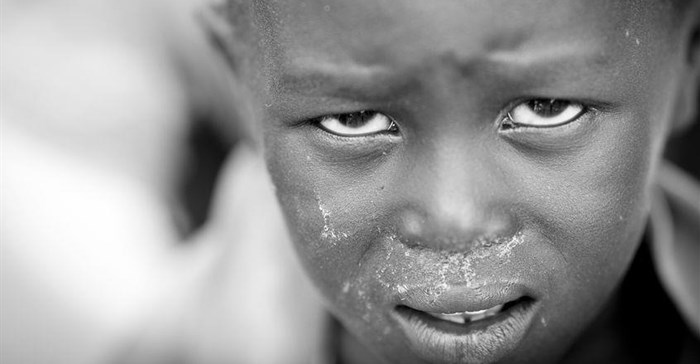Conflict arenas are fertile ground for the spread of infectious diseases, which pose a major public health threat in South Sudan and add to the chronic burden of disease.
The World Health Organisation (WHO) and its partners are responding to multiple outbreaks including cholera, malaria, measles, suspected haemorrhagic fever, and kala-azar.
“In spite of the insecurity, we’re taking every opportunity to ensure that we reach the people with health care services to protect them at this time when the health system has crumbled,” says Dr Abdulmumini Usman, WHO representative to South Sudan.
Displaced people risk cholera
Cholera was confirmed in Juba on 21 July 2016 in the aftermath of the recent escalation of violence in the region where clashes between the military and opposition forces resulted in hundreds of people dead and thousands displaced. As of 6 September 2016, a total of 1,762 cholera cases, including 26 deaths had been reported from five states: Juba, Terekeka, Jonglei, Eastern Lakes and Imatong.
WHO has treated approximately 1,700 cholera patients and issending health promoters to visit around 88,000 households with prevention messages and items such as water purification tablets, oral rehydration solution and soap.
Malaria on the rise
More than 1,3, malaria cases have been reported since the beginning of 2016. They started rising in early May and, during the week of 30 May 2016, an outbreak was declared in Bentiu, a camp for internally displaced people. By 28 August 2016, 31 counties in eight states had exceeded the malaria epidemic threshold countrywide. Since May, over 800,000 people have received treatment for malaria through static, outreach and mobile health teams. WHO has supported airlifting of malaria medicines and commodities and malnutrition kits to Northern Bahr el Ghazal, one of the most affected states, and has donated malaria medicines and commodities to affected areas in six other states.
Vaccination best protection against measles
Since the beginning of 2016, more than 1,600 measles cases, including at least 19 deaths, have been reported countrywide. WHO has confirmed and responded to measles outbreaks in 12 counties. Since the fighting escalated in mid-2016, around 182,000 children have been vaccinated against measles. A follow-up campaign is planned for October 2016. Ensuring the majority of children receive vaccination is the best protection against this highly contagious disease.
Deadly disease spread by sandflies
Kala-azar is the most severe form of leishmaniasis, a disease spread by sandflies. It causes fever, weight loss, anaemia, enlargement of the spleen and liver, and is fatal if left untreated in most cases. The disease is endemic in parts of the country. In 2016, more than 1,000 cases including 42 deaths have been reported in South Sudan. WHO co-leads the kala-azar taskforce and is supporting deployment of rapid response teams to affected areas. The organisation also helps train health workers at treatment sites, provide weekly analysis of data and deployment of supplies such as rapid diagnostic kits and medicines to the treatment centres.
Disease detection important for fast response
Most of these infectious diseases have been controlled or eradicated from most parts of Africa but are still causing epidemics in South Sudan due to poor socio-economic conditions. When countries are struck by conflict or natural disasters, exacerbated by weak health systems, overcrowding and population displacement, they are most vulnerable to infectious disease outbreaks.
Adding to the challenge is the weakness of disease surveillance systems, making it hard to measure the true scope of the problem, or to allow for the early detection of outbreaks and appropriate response.
The early warning alert and response system (EWARS), a network of static and mobile partner-supported reporting sites enhances detection of disease outbreaks in populations of humanitarian concern. There are now 58 EWARS reporting sites in South Sudan, and these sites will continue to be expanded to complement the existing surveillance system in areas affected by the crisis.
Support to detect and control outbreaks
The organisation also trains rapid response teams to investigate and respond to emerging outbreaks and has prepositioned outbreak investigation and response kits for several infectious diseases, as well as for medical complications of acute malnutrition, at nine state hubs. These supplies have been used to promptly respond to emerging outbreaks and humanitarian emergencies countrywide.
Working with the state rapid response teams, United Nations Humanitarian Air Service (UNHAS) and partners, WHO facilitates and supports the shipment of biological samples to the national public health laboratory and international collaborating laboratories for confirmatory testing. It also supports the national public health laboratory to test samples of cholera, measles and other priority diseases, to enable a fast response that will ultimately save lives.


































